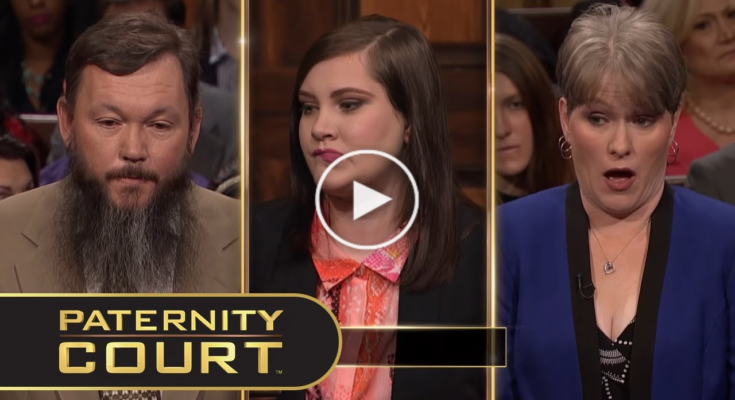This scientific article analyzes the contentious case of Burks v. Smith, centered around the paternity dispute of four-year-old Masiah Burks. Ms. Burks alleges that her former boss, Mr. Smith, is the father of her daughter, while he vehemently denies the claim. The article examines the testimonies presented during the court proceedings, delving into the emotional and legal complexities surrounding paternity disputes.
Ms. Burks seeks to establish Mr. Smith as the biological father of Masiah through DNA testing, which holds significant implications for the child’s financial support and emotional well-being. The court grapples with the conflicting accounts presented by both parties and their respective witnesses.
Throughout the court proceedings, emotions run high as Ms. Burks passionately asserts her claim, while Mr. Smith firmly denies any paternal connection to Masiah. The case takes on a complex and multifaceted nature, intertwining personal relationships, workplace dynamics, and legal ramifications.
Ms. Burks: “That’s a doggone lie, man. That’s a doggone lie.”
Mr. Smith contends that Ms. Burks manipulates the situation, using Masiah to secure a place to stay and regain access to his home. He portrays her as overly infatuated with him and even accuses her of stalking him. These allegations raise questions about the authenticity of Ms. Burks’ claims and the motivation behind her pursuit of paternity.
Mr. Smith: “The plaintiff has it really bad for me, almost stalker-ish.”
The court examines the frequent presence of Ms. Burks at Mr. Smith’s home due to their work arrangement. While Mr. Smith claims he offered her an apartment, Ms. Burks refutes this claim, asserting that she never had the option. This discrepancy highlights the lack of clarity in their relationship and raises concerns about the veracity of each party’s statements.
Ms. Burks: “He’s a good liar. I don’t see how he could sit in front of a judge and lie like that.”
Despite denying paternity, Mr. Smith reveals that Masiah refers to him as “daddy” and acknowledges taking care of her consistently. However, he also admits to starting a new life with another woman and expresses concern about potential confusion with her daughter. The court confronts the ethical and moral dilemmas surrounding his relationship with Masiah, given his emotional attachment to her.
Mr. Smith: “I don’t want her to be in the same predicament as me.”
The court orders a DNA test to conclusively determine Masiah’s biological father. When the results are revealed, it is confirmed that Mr. Smith is not the biological father, leading to a mix of emotions for all involved.
Judge Lake: “In the case of Burks v. Smith, when it comes to four-year-old Masiah Burks, it has been determined by this court, Mr. Smith… you are not her father.”
The court’s decision leaves Mr. Smith emotionally devastated, as he has developed a strong bond with Masiah, considering her as his daughter. Ms. Burks is visibly upset, concerned about the implications of not knowing Masiah’s biological father. This emotional turmoil underscores the complexities of paternity disputes and their potential long-term effects on the child’s well-being.
Ms. Burks: “It hurts me because I don’t want her to be in the same predicament as me.”
The case of Burks v. Smith highlights the sensitive nature of paternity disputes, where emotions collide with legal considerations. Despite the court’s ruling, Mr. Smith pledges to remain involved in Masiah’s life, showcasing the significance of parental bonds that extend beyond biological relationships.
The court’s decision emphasizes the need for open communication and responsible decision-making to provide a stable and supportive environment for the child’s upbringing. While the legal outcome may not align with emotional ties, Mr. Smith’s commitment to continue supporting Masiah serves as an essential factor in ensuring her well-being and happiness.
The case of Burks v. Smith serves as a poignant reminder of the complexities surrounding paternity disputes. Balancing emotional attachments with legal obligations proves challenging, and the court’s ruling has profound consequences on all parties involved.
This case underscores the importance of addressing paternity disputes promptly through DNA testing to ensure the child’s best interests are met and to prevent emotional distress for all parties involved. The article also highlights the significance of providing a stable and supportive environment for the child’s upbringing, regardless of biological relationships.
Moving forward, it is essential for society and the legal system to promote open dialogue, understanding, and empathy when handling such sensitive cases. By focusing on the well-being of the child and creating a nurturing environment, we can help guide families through difficult times and foster positive relationships for a brighter future.



